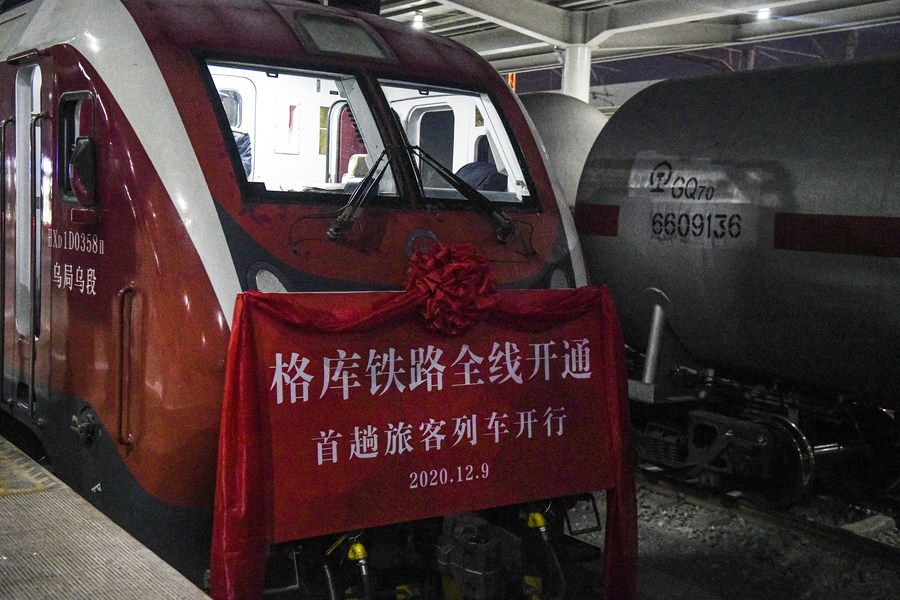Major railway begins operations, forging new links through western China
 0 Comment(s)
0 Comment(s) Print
Print E-mail Xinhua, December 10, 2020
E-mail Xinhua, December 10, 2020

A major railway line linking northwest China's Xinjiang Uygur autonomous region and Qinghai province was put into operation on Wednesday, paving the way for the accelerated development of the country's western region.
The 1,206 km Golmud-Korla railway, linking the city of Golmud in Qinghai and the city of Korla in Xinjiang, is the third railway facilitating exchanges between Xinjiang and other regions.
Construction was divided into two sections, with the length of the Xinjiang section topping 734 km. The Qinghai section was operational in June this year.
The line, which can be used for passenger and cargo transport services, will cut the travel time between Golmud and Korla from about 26 hours to roughly 12 hours.
On Wednesday, a freight train carrying gasoline and diesel left Korla for Golmud. "Trains are capable of hauling large loads and reducing transportation time. They are safer and more environment-friendly," said Cao Zhihong, deputy general manager of a Xinjiang-based company under Chinese oil and gas giant Sinopec.
Compared with previous railway transport, the distance the company's refined oil from Korla to Golmud travels can be reduced by 800 km and the freight charge cut by 25 percent thanks to the new line, Cao said.
The Golmud-Korla Railway crosses a variety of landscapes including deserts, plateaus and mountains as well as natural reserves, and boasts an altitude difference of more than 2,500 meters.
A raft of steps such as building passages for wildlife migration have been taken to minimize the impact on the local environment and animals.
The line has also avoided a major wildlife water source at the cost of extra investment.
The new rail artery also links to the Qinghai-Tibet Railway, the world's highest rail system. The network will link Xinjiang, Tibet Autonomous Region and Qinghai, boosting local rail transport capacity, reducing travel time, and helping the regional economy in western China.
The Golmud-Korla Railway is a key national rail project. China issued a guideline in May to accelerate and upgrade the development of the country's western region, covering an array of measures including improvement of transportation infrastructure.
China's railway network had a total length of 141,400 km by the end of July, including 36,000 km of high-speed railways, according to the national railway operator.






Go to Forum >>0 Comment(s)